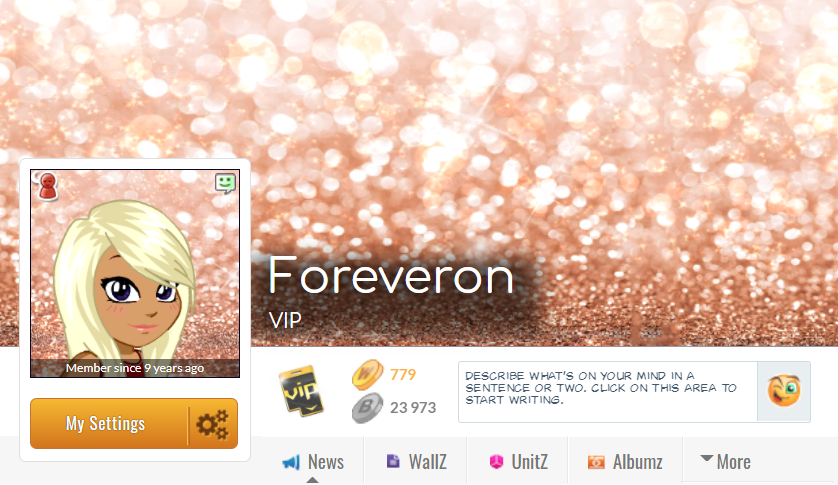CELINE
BACK TO HOME
WHAT MY BLONDE WOOZEN MEANT (AND MEANS) TO ME
In Glitch Feminism, Legacy Russell makes the compelling argument that the liberating exploration of her identity online helped her wrestle with what it meant to exist as a Black, female-identifying, queer person offline. The cyberworld helped her discover herself in ways not possible AFK where marginalized bodies like her own were being “systematically erased, edited out, ignored” (13). She uses this digital term “edited out” when describing her experience IRL, to demonstrate how lingo learned from frequent Internet usage can bleed out into her everyday life, and to possibly imply that more than just the terminology might seep out too. In fact, the phrase shows an imaginative pasting of her digital character onto herself in the real world, in that she came to the jarring realization of existing as essentially the human version of what is an easily-deletable avatar online.
But through her continual digital acts of refusal to conform to the limited options often forced upon societal identifiers like gender and sexuality, she finds what she terms as the power of the “glitch.” This glitch “aims to make abstract again that which has been forced into an uncomfortable and ill-defined material: the body” (15). Russell proposes that the online space is one where glitched bodies like hers can create a larger glitch in the system: an error that cannot be ignored in the face of capitalism, misogyny, homophobia, and racism. By posing a threat to social order through these acts of dissent, she both pushes back against systemic power imbalances in society while developing a better understanding of who she is through embracing her digital skin.
The skin that I most remember inhabiting online was developed in Woozworld. The Woozen character I developed nine years ago still exists with long blonde hair, a leggy figure, dark blue eyes, and a slight smile; in game, I even had an accompanying white, blonde boyfriend. In other words, “Foreveron” felt and looked nothing like me, Celine.

I don’t believe that at the time, my intention was to make an avatar that opposed me so obviously, but I do remember prioritizing the aesthetics of my character above all. As a result, rather than exploring how I could embody different digital skins online, I unconsciously restrained myself from this abstractness. I never altered my appearance more than a little from what it currently looks like, because I wanted to perfect what I believed was the most beautiful character — based on the Eurocentric beauty standards that I had ingrained from mass media. Thus, the ability to modify my avatar had quite the opposite effect than Russell’s idea of the glitched body intended, and Foreveron’s life became entirely distinct from my own. I never recognized myself in her.
While filming a video for
Ethnocultural Support Services this year, my partner and I discussed what it was like to exist in an interracial relationship.
Profile of my Woozen "Foreveron"
Love Beyond Borders video series featuring me and my partner
Before entering university, I never consciously saw myself as a racialized person. But since that video, I realized that in some ways, Woozworld had cemented in my mind that I was othered, because I saw in my avatar what seemed to be an unattainable goal for myself in reality. This might explain my initial shock and hesitation at being in a relationship with someone who was white, since I had unconsciously decided that that realm of possibility belonged only to Foreveron and not to me. I had so firmly compartmentalized the idea that I could be desirable to those not of my own ethnicity onto my online avatar that I had never even considered that it could extend into my real life as well, or that I didn’t actually need to look like my avatar to do so. Unlike Russell, I was detaching and cutting myself up, more than I was exploring who I was. I fell into the trap of the systemic racism that Russell proposed that the glitch could fight against in the first place.
The digital is our bridge to exploring the facets of ourselves in ways never before possible. But crucially, I think that those who do go online for these sites of experimentation must remember that this exploration should comprise of an attempt to break free of the binary systems that we have been placed in, rather than of a stricter division between our online and offline selves.
Until next time,
Celine ❤
References:
Russell, Legacy. Glitch Feminism: A Manifesto. London, Brooklyn: Verso, 2020.
Media:
Ethnocultural Support Services. "Love Beyond Borders: Segment #1." Instagram, 23 November 2020,
"Foreveron." Woozworld, www.woozworld.com/p/Foreveron. Accessed 6 February 2021.






Feb 6, 2021
www.instagram.com/p/CH8dsNhpzVB/.
BACK TO MARS
Home to Curiosity and Perseverance